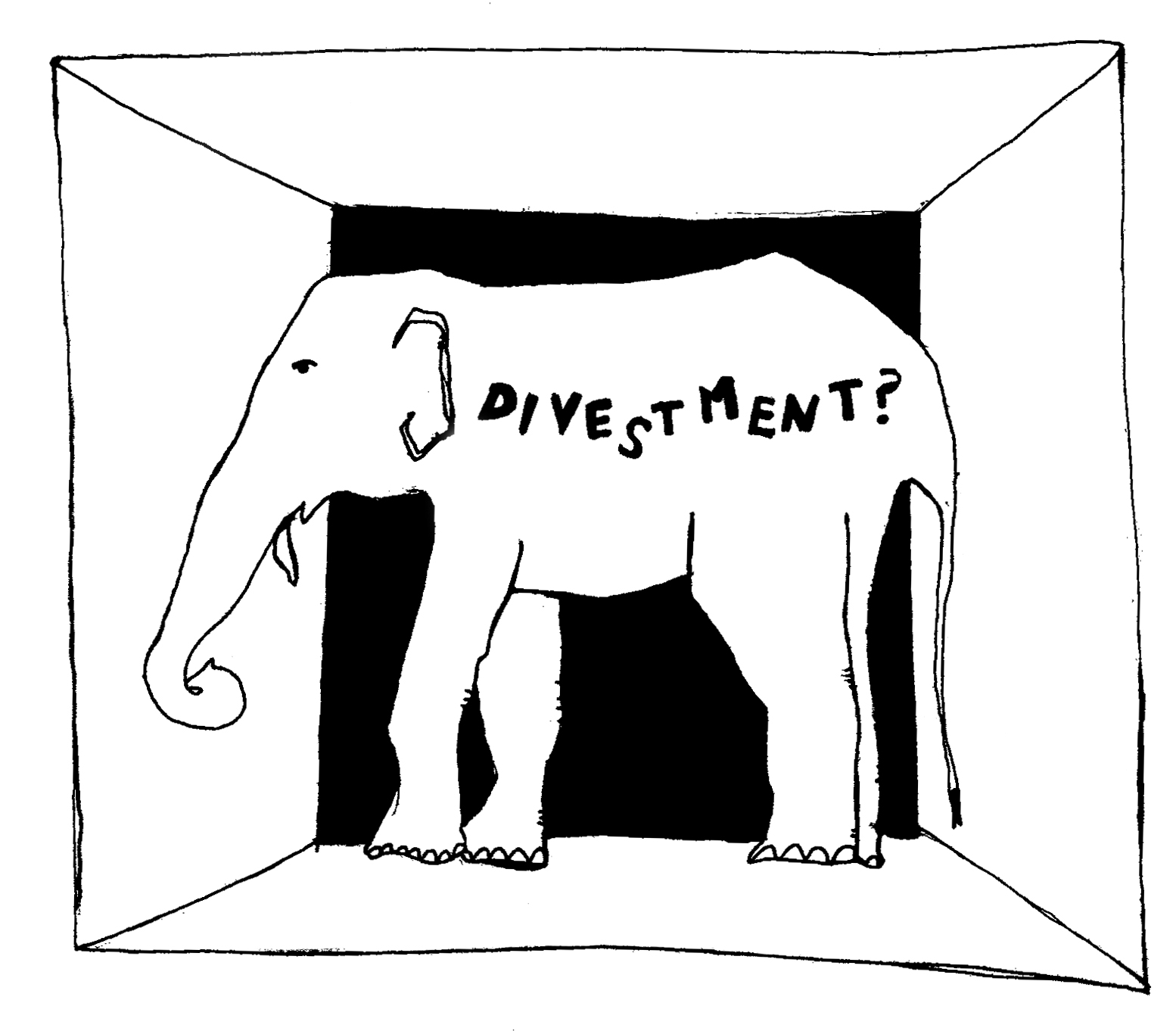Seattle alumni respond to Rose’s stance on divestment
March 31, 2017
 This
piece represents the opinion of the author
.
This
piece represents the opinion of the author
.
 Alex Westfall
Alex WestfallOur planet and human civilization teeters precariously on the edge of an unfathomable ecological abyss. Runaway global warming and climate change threaten to unravel the web of life beyond anything for which our ancestors could have prepared us. Many scientists have already stated that we have now entered Earth’s “Sixth Great Extinction.” The fate of our children and all life on the planet hinges on our collective actions right now—not 10 to 20 years hence, not in a few years, but now. Action from even one individual or institution could shift the energy, tipping it towards planetary balance or our collective demise. Bowdoin can and should play a healing role by divesting from fossil fuels.
If the United States abandons the 2015 Paris Climate Accords that set a target of limiting warming to 1.5 degrees Celsius above pre-industrial levels—a likely possibility given the alarming climate denial professed by the incoming Trump administration—it will be extremely difficult, if not impossible, to rebuild the trust necessary for international cooperation and climate stability. Amplifying the direness of our present situation, we may already be two thirds of the way to surpassing the 1.5-degree target, with 2016 on track to be the warmest year on the planet since climate recordkeeping began.
“Business as usual” is no longer an option, and yet, when my fellow Bowdoin alumni friends and I called out the climate elephant in the room during President Clayton Rose’s recent trip to Seattle and suggested that Bowdoin needs to divest to remain true to Joseph McKeen’s “common good” foundational vision, his response was “business as usual.” We were told that fossil fuel divestment is merely symbolic, and does not have significant transformational value towards society—despite historical evidence to the contrary when one considers the success of the South Africa divestment campaign of the 1980s in breaking the apartheid system.
We listened and heard that communicating our values to the Wall Street fund managers managing the College’s endowment would result in our losing access to these “special” people, resulting in potential losses for the endowment. Let us compare the potential consequences due to climate change, including the disappearance of 90 percent of the species of life on the planet and possibly Homo sapiens, versus a theoretical slight monetary loss to Bowdoin’s endowment. Which is the greater risk?
We can debate economic profit and loss and even ecological morality. But, as Bill McKibben points out, we cannot escape the laws of physics and chemistry. Bowdoin can highlight its commitment to “green” sustainable energy by building a new environmental studies center, but this will do nothing now to reverse climate change. It is analogous to attempting to hold back a flood of biblical proportions with a proverbial finger in the dike, as the next Hurricane Katrina comes barreling ashore in New Orleans or any other coastal city in the world.
Perhaps 10 percent of the alumni in attendance at the Seattle gathering were wearing orange squares pinned to their attire. The orange square campaign was conceived to call attention to the interconnected struggles for climate and social justice. Bowdoin’s Board of Trustees, largely white, wealthy and male, can debate the merits of divestment from their positions of privilege while hundreds of millions of people live in areas of the world affected by sea level rise. Millions of people today live in the shadows of refineries, with high rates of cancer and respiratory disease. The Syrian crisis was fueled by climate change-induced drought. Many more marginalized individuals live with polluted water from fracked aquifers flowing from their taps. Which brings us to Standing Rock, North Dakota.
At Standing Rock, the legacy of five centuries of European-American genocide of indigenous people continues in the form of a corporate- backed police state employing massive weaponry, inflicting violence at will upon peaceful water protectors. The Dakota Access Pipeline (DAPL) is yet one more profit grab by the fossil fuel industry, a tar sands oil pipeline which will inevitably end up polluting our air, water and soil.
The financiers of the pipeline are major U.S. banks and investment firms. How many of the trustees have a stake in these companies? Are they acting with due diligence in disclosing financial holdings which may result in conflicts of interest, thereby jeopardizing the moral arc of the College? Will Bowdoin continue to look the other way in reckoning with an endowment tainted by ongoing climate destruction and disregard for treaty and Constitutional law? Or will it step up now and authentically lead in direct proportion to the challenges our world faces? Prompt divestment is the reasonable and ethical choice.
Cosigned by Seattle Bowdoin alumni:
Peter Van Voast ’50
Mary Moseley ’79
Dave Menz ’83
Marte Menz ’83
Julie Claire Earnest ’84
Garth McCarty ’97
Savitha Reddy Pathi ’97

Comments
Before submitting a comment, please review our comment policy. Some key points from the policy: